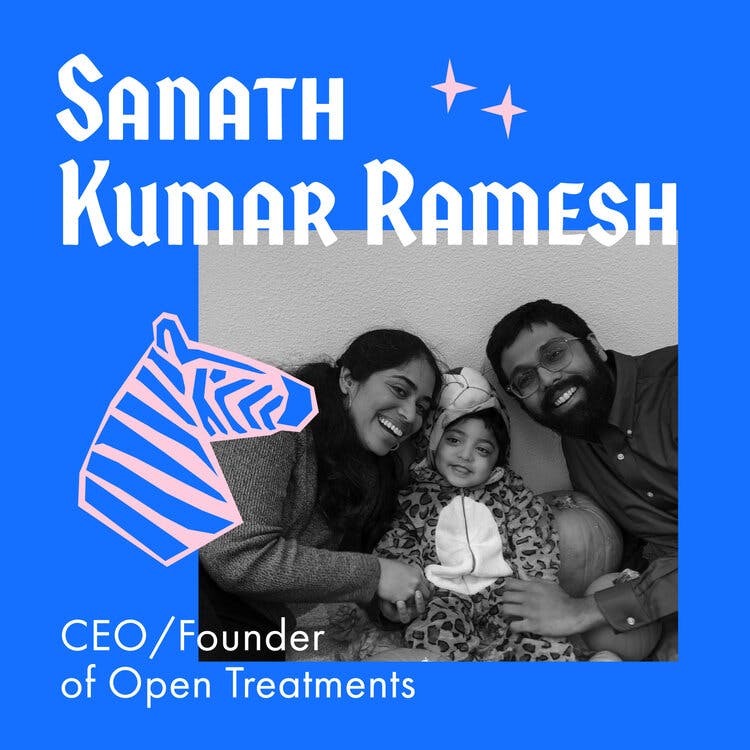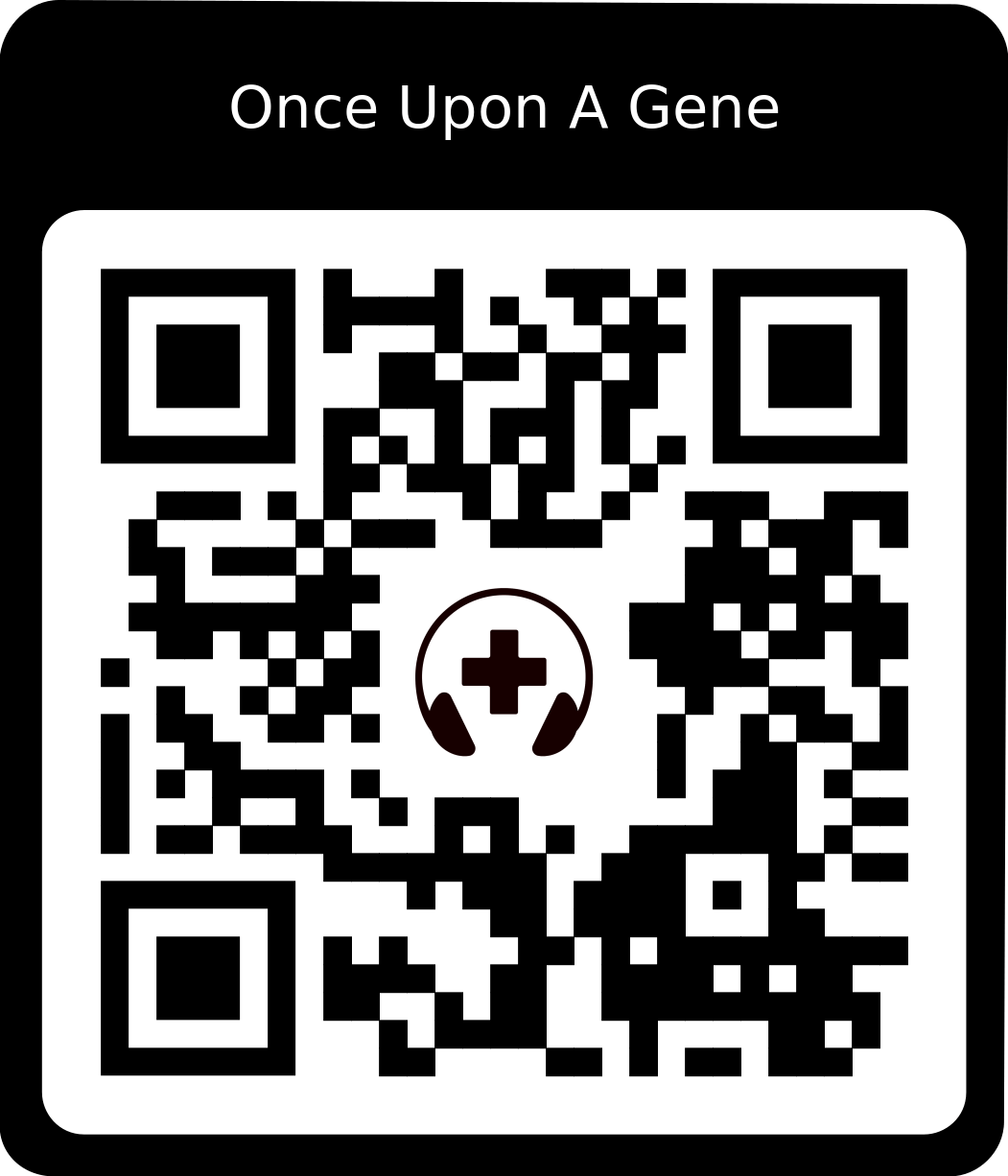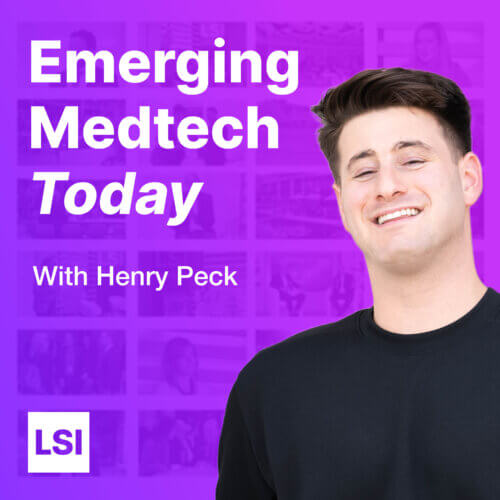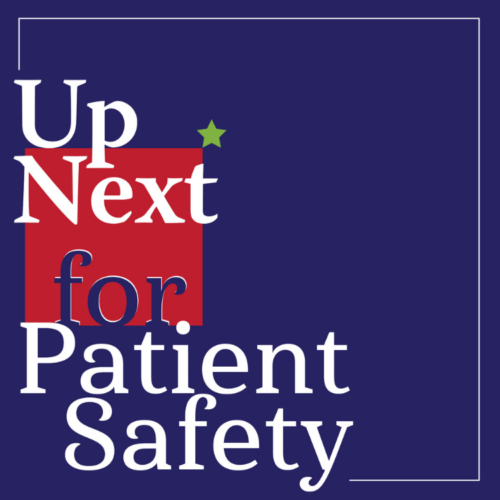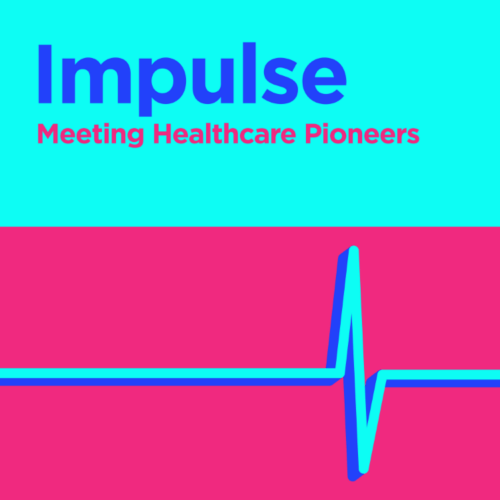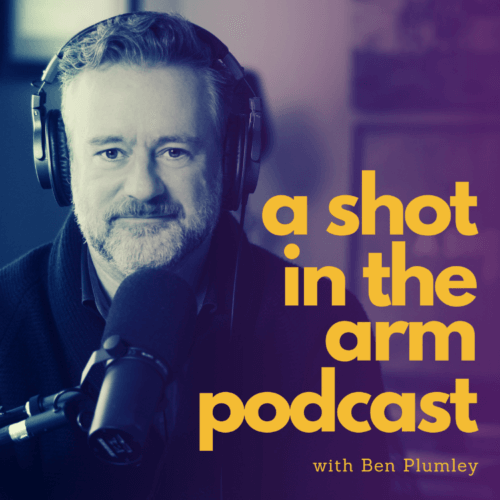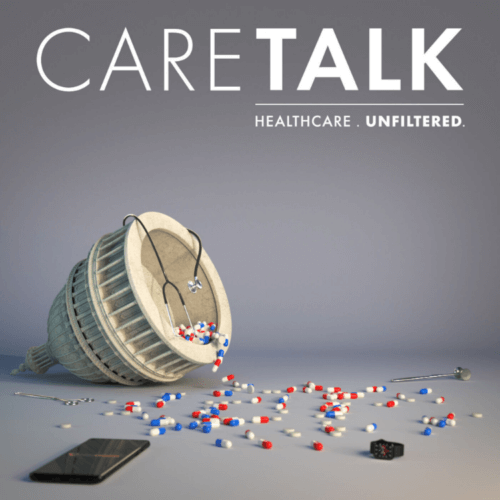Enabling Rare Disease Treatments with Sanath Kumar Ramesh – Founder & CEO of OpenTreatments
ONCE UPON A GENE – EPISODE 092
Enabling Rare Disease Treatments with Sanath Kumar Ramesh – Founder & CEO of OpenTreatments
Sanath Kumar Ramesh’s son is one of only nine kids worldwide with an ultra-rare genetic disease called Sedaghatian Type Spondylometaphyseal Dysplasia (SSMD). He has a podcast called Raising Rare where he and his wife talk about their journey, finding a treatment for their son and they feature stories of others in the rare disease community. Sanath is joining me on this episode to talk about his new software platform called OpenTreatments, a nonprofit organization with a mission to enable treatments for all genetic diseases.
EPISODE HIGHLIGHTS
Can you tell us about yourself and your family?
I have a 2 1/2 year old boy named Raghav who was born with challenges and he continued to miss milestones through his first year of life. On his first birthday, we learned he has an ultra-rare condition caused by a mutation in the gene GPX4. When Raghav was diagnosed with SSMD, we thought he was the only patient, but we’ve since found 8 other patients worldwide.
Can you tell us about OpenTreatments?
My idea is to collaborate the knowledge and experience of biotech companies and academic researchers to help patient foundations build and run their gene therapies. We are starting with a pilot program of four diseases to understand how well the software program is working and identify any challenges the programs are experiencing. Our mission is to enable treatments for all genetic diseases regardless of rarity or geography.
How can parents or patient groups work with OpenTreatments?
There’s a lot of risk in the drug development process and the amount of risk we take on is not like any investment any one of us has ever done in our lives. Even wealthy venture capitalists don’t invest in drug developments because there’s a high risk of losing money. For parents who have just received a diagnosis, they’re struggling to understand what life has in store for them and embarking on drug development isn’t well aligned. We focus mainly on patient groups who have a foundation started, have raised money and have a scientific advisory board.
Do you think biotech and pharma companies will eventually take interest in rare disease treatment missions?
It’s a challenging problem and I think the bottom line is risk. Pharma isn’t interested in rare diseases with such a limited number of patients, like my son’s disease, because the risk to treat a patient where a potentially adverse reaction can happen is a risky unknown. The decision becomes whether or not the risk is worth the benefit and what the benefit is when treating such a small number of patients. When there is a larger group of patients, there’s also a bigger commercial upside and it’s likely worth the risk to explore treatments. Several ideas have been proposed for getting ultra-rare diseases an alternate path to drug therapy, including getting more regulatory support or building collective treatment for ultra-rare diseases. Insurance providers could also potentially pay for the research and development of drug therapies because their spend burden is high over the lifetime of a patient. I don’t know what the future holds, but I do know that we need more people in drug development so ideas can be tried and tested.
RESOURCES MENTIONED
https://www.opentreatments.org/
CONNECT WITH EFFIE PARKS
https://twitter.com/OnceUponAGene
https://www.instagram.com/onceuponagene.podcast/?hl=en
